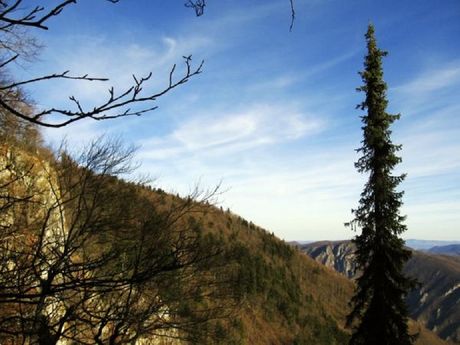Serbian spruce is Tara's pride and will grow again in Serbia: National park is fighting to save it
If Serbia is special in some way, and if there's one thing that only we and nobody else in the world have, it's - the Serbian spruce or Picea omorika (in Serbian: "Panciceva omorika"). Josif Pancic discovered it in the hamlet of Djuruci, on the Tara Mountain, on August 1, 1887.
This endemic species is the pride of the Tara National Park, with thousands of tourists and nature lovers coming every year to see the rare tree, while the management's goal is to make sure it survives in its natural habitat.

"The Serbian spruce is under the first degree of protection and is found in 17 localities. We've joined a joint project with Bosnia and Herzegovina to preserve the biodiversity of the Drina River, and the focus is on the spruce," Milica Tomic, Assistant Director of NP Tara for Planning, Protection and Development told RINA.
The biggest problem as far as this plant species goes is that it reproduces poorly in nature, so the only option are nurseries.
"We will help in renewing them, we will map all its habitats and produce a genetic analysis in order to make sure it survives, and the number of trees will increase," said Milica Tomic.

Josif Pancic first heard about the spurce as a special kind of conifer in the Uzice region in 1855. However, a few years later he was unable to find it when he took his students on a field trip to western Serbia.
That trip was unsuccessful, as the spruce had not been spotted. It was not until 1875 that he found it in Zaovine, but the discovery immediately began to be challenged in scientific circles. Pancic, however, withstood the criticism of science, proved the existence of this tree, and thus it was named after him. Pancic often called it, "the ice beauty."
Video: They went to Tara on a spring break, but were greeted by snow
(Telegraf.rs/RINA)
Video: U Srbiji godišnje u saobraćajnim nesrećama oko 500 ljudi izgubi život
Telegraf.rs zadržava sva prava nad sadržajem. Za preuzimanje sadržaja pogledajte uputstva na stranici Uslovi korišćenja.

